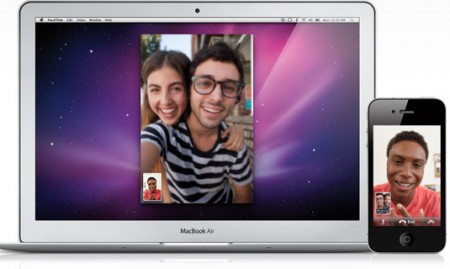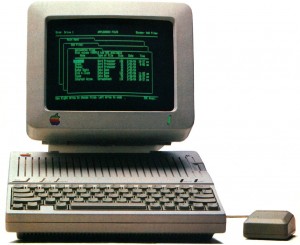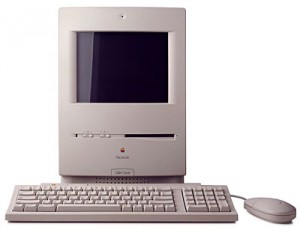I took a couple of days to digest the iBooks Author news – to see what the fuss was about and form my own opinions in a timely fashion. I even took time to hoover in all of the opinion on the industry which, on the side of the creators, seems largely positive and on the side of the publishers, seems largely negative.
iBooks Author enables normal folk to create some amazing content. It enables the embedding of HTML widgets, the inclusion of presentation decks, 3D models, pictures, text – in fact – everything you’d want in a book or a magazine, and previously had to pay for an individual app. But one issue, these extra features won’t work in any competing ePub reader because they’re exclusive to iBooks.
From Nameless Horror: iBooks Author Rage
Apple claim no ownership of the product (there’s the standard “we reserve the right to reject and/or pull your book from the store” but that’s no different to any other e-store or bricks ‘n mortar outlet; you don’t have a right to be sold). Your copyright is unaffected. There is nothing whatsoever (so far as I can see) stopping you from taking the same content, assembling a different epub edition in a different program, of which there are plenty (though I’ve not found one that handles this level of designed-for-touch-device interaction and prettiness quite so easily
Obviously some folk are up in arms. Ed Bott, particularly, calls Apple “evil” and “greedy” but I’m failing to understand why he’s so incensed. Apple supports ePub formats, they continue to make the best reader of this cross-platform format on any platform.
All we’re waiting for is someone to create “ePub Author”.
So, two things.
- Why didn’t Apple create ePub Author? (and why are people upset about this?)
- Why hasn’t anyone created ePub Author? (and why are people not upset about this?)
The world hasn’t had much success in getting open standards out there. I mean, HTML is a standard and look at the mess we’ve had to endure for the last twenty years. And yes, the W3C can rail all they want about the proprietary extensions that make “iBooks” differ from “Epub” but do we have to think about why no-one has made an ePub Author app that doesn’t suck? You can get ePubs out of InDesign and out of Pages but if you want great results, you’re hand-coding the bits and pieces. And that’s not going to make anyone happy.
The big issue for some seems to be the EULA which demands a level of control over the output of the software. That is, they give you a tool for free to create great iBooks, which you can give away for free or sell for less the $15 on the store they’ll set up for you. This not only undercuts a shedload of publishers but also sets a precedent for the pricing. If $15 is the top price, eBooks just got a hell of a lot more affordable. That’s gotta be good for the market and, if Apple is only taking 30% of cover, it’s a lot better for the author as well. Speaking from experience here.
Some folk have compared this to, say, Microsoft demanding control of the output of Microsoft Word which would be a valid comparison if Apple had a monopoly share of the operating systems, a monopoly share of the word processing market, charged several hundred quid for iBooks Author and pushed the iBooks format as a standard across all devices, platforms and organisations. Which, of course, it doesn’t. On any level.
Some people pointed out that Apple has a monopoly share of the tablet market. Which, again, I’d have to say they don’t. They just have a large share of the profits and a pretty good share of shipments. But there were 87-odd tablets announced at CES in 2011 and I’m sure that some of them are selling, somewhere to someone.
Some folk are determined to blame Apple for breaking their expectations that the company would release an amazing ePub editor. Not only that – but that would allow folk to build sparkly ePubs on a Mac using a free tool, glittering with Apple Awesome Sauce and sell them for any price on Android. In any sane version of the world, this does not work. Apple has no interest in promoting Android – they’re much more likely to promote Windows Phone 7 than Android, truth be told. And they’ve no interest in promoting you and your product unless it coincides with their own aims: making the Mac, the iPad and the iPhone the world leaders in great products.
You want to make great ePubs and sell them anywhere? Apple still provides probably the best ePub reader on any platform, for free, to about 300 million customers on iOS. Customers who don’t mind paying for content. And you can deploy on Android and wherever else has an ePub reader. It’s a standard so there must be millions of them. All you have to do is hand-roll the ePubs yourself. Stop stop whinging and get stuck in.
But for the average punter? iBooks just works. And the iBooks available through iBooks Author (though there doesn’t seem to be a solution for iPhone) will be fine considering the number of iPads out there. As a consumer of eBook formats, iBooks delivers – as does Kindle. I don’t recall the outcry when Kindle didn’t support the ePub standard?








